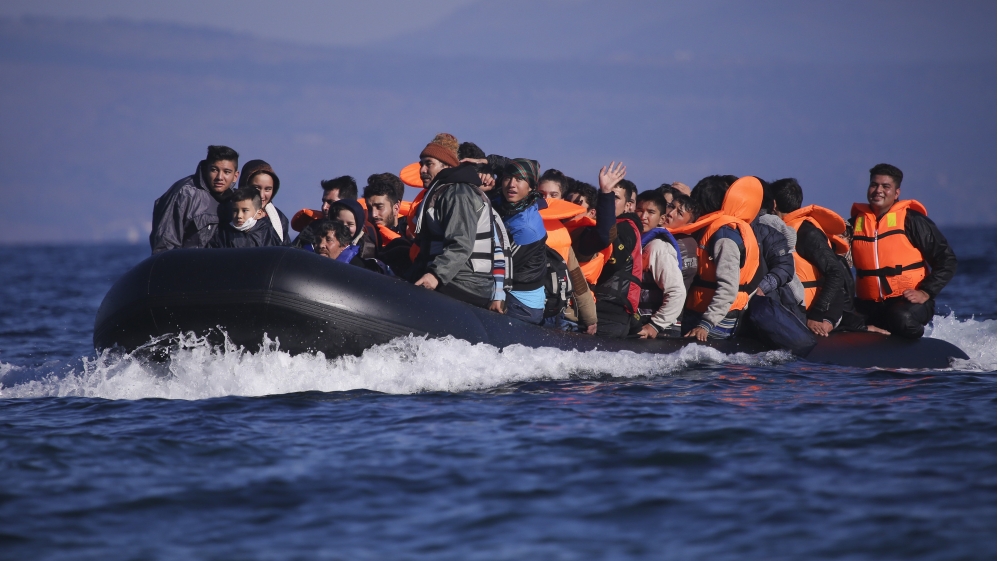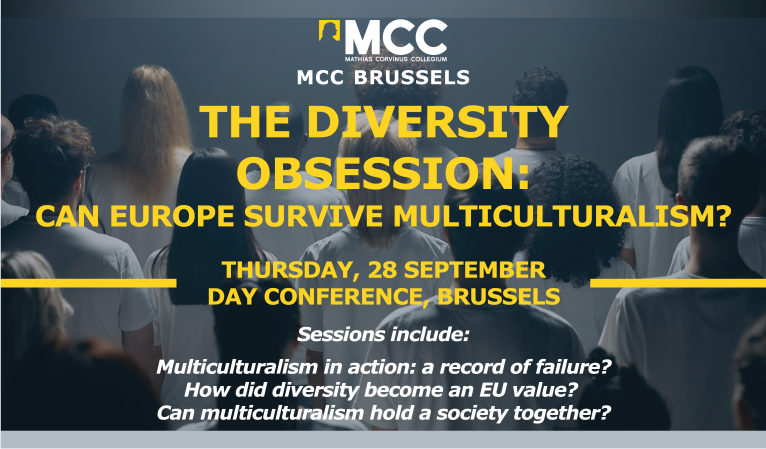Migration: Why Borders Matter
18:00, Wednesday 11th October
Press Club Brussels, Rue Froissart 95, 1040 Bruxelles
With Europe facing unprecedented challenge to its borders, join MCC Brussels for an examination of the importance of borders in an age of migration crises.
Speakers:
- Patricia Chagnon MEP, Rassemblement National and ID
- Professor Frank Furedi, Executive Director of MCC Brussels and author of Why Borders Matter: Why humanity must relearn the art of drawing boundaries
- Dr Calum T.M. Nicholson, Head of Research, Climate Policy Institute and fellow at Mathias Corvinus Collegium
With migration, the European Union is facing a crisis of both practicalities and principles. Not only does the Union face the arrival of unprecedented numbers of migrants, but the crisis calls into question some of the fundamental professed values of European elites and societies. For decades, the EU has trumpeted its attachment to the principles of free movement and the ideal of a ‘borderless’ society. Yet from Germany’s recent imposition of border controls on Poland to the militarisation of the EU’s external borders, these ideals are being questioned as never before.
Rising disaffection with Europe’s migration policies have forced borders back to the forefront of the national conversation. Across the continent, leaders have promised to get tough with both legal and illegal migration. The most recent flashpoint has been in Italy, with politicians talking of an ‘invasion’ of arrivals from North Africa and beyond. The seeming inability of Europe’s elites to control and manage the border has sparked anger across the continent.
Concerned to get a handle on the migration issue, Ursula von der Leyen made a high-profile visit to Tunisia this summer with Mark Rutte and Giorgia Meloni, attempting to complete a deal to limit migrant departures. Latterly, von der Leyen insisted the EU’s new Pact on Migration and Asylum would be implemented through qualified majority voting despite Hungarian Prime Minister Orbán and Polish Prime Minister Morawiecki refusing to sign up to the deal at the June EU Council summit. Orbán and Morawiecki insisted on their countries’ right to determine how to police their own borders.
The assumption of many elites is that a concern for borders is a sign of a backward mentality. Rich Europeans, they argue, have a moral obligation to allow in almost anyone feeling persecution or even merely seeking a better life. But borders are not a relic of the past. Indeed, the widespread condemnation of Russia’s invasion of Ukraine indicates that sovereignty rests on the ability to control one’s borders. In fact, borders – whether between states, between adult and child, between man and woman, between public and private – have an enduring importance in an age where old certainties seem to have been called into question.
The migration crisis throws up fundamental questions for Europeans. In an ‘age of migration’, should Europeans accept almost unlimited new arrivals from abroad? What is the impact of migration on different European societies? Who should decide on the question of borders – EU elites or national democracies? Fundamentally, do borders matter, and why?


